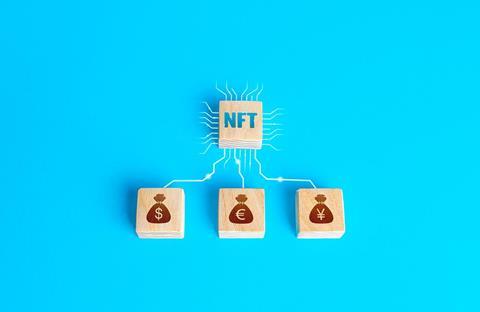It’s a tale as old as time how to cheat the state. Real estate and art have long been a common refuge for financial sleight of hand.

The rise of cryptocurrencies 13 years ago presented new challenges for regulators to monitor the movement of ill-gotten gains trickling into the financial system now non-fungible tokens or NFTs are bringing together the best of both worlds.
In a recently published study by The United States Department of Treasury has raised the alarm on how the rapidly growing NFT space can become a refuge for money laundering on a grand scale.
The NFT market in the first quarter of 2022 NFT trade volume exceeded $15 billion in GMV on OpenSea alone with an average monthly volume exceeding $5 billion GMV.
The Treasury Department’s study on the Facilitation of Money Laundering and Terror Finance Through the Trade in Works of Art notes: “NFTs can be used to conduct self-laundering, where criminals may purchase an NFT with illicit funds and proceed to transact with themselves to create records of sales on the blockchain.
The NFT could then be sold to an unwitting individual who would compensate the criminal with clean funds not tied to a prior crime. It is also possible to have direct peer-to-peer transactions of NFT-secured digital art without the involvement of an intermediary, and these transactions may or may not be recorded on a public ledger”
In essence, NFTs can help facilitate an incredibly frictionless financial sleight of hand and has elevated the ability to launder ill-gotten gains quickly. With physical art money laundering through art the primary challenge is largely logistical, NFTs remove that challenge from the equation entirely.
NFTs are not the same as cryptocurrencies, when a bad actor attempts to shuffle or tumble dirty coins through a myriad of exchanges and digital wallets it’s difficult to facilitate what is called a chain break, where the blockchain or digital ledger is disrupted to where despite encryption it cannot be tracked.
NFTs however are a separate digital product. You use cryptocurrency to buy an NFT. This enables a chain break to effectively clean the dirty coins.
When people think of criminal activities such as the procurement of illicit schedule 1 substances, they often have this image of gangs meeting up in the dead of night at an abandoned warehouse with cash changing hands, this is quickly becoming only a matter of imagination.
Today there are tens of billions of currencies changing hands for illicit activities exclusively on online darknet marketplaces. Individuals use cryptocurrencies to make elicit purchases and the illicit vendors are left with a problem, ensuring they can move said cryptocurrencies across cyberspace and ultimately into a brokerage that is linked with a bank account.
NFTs provide a clean exit to an independent digital marketplace with value that can then be sold legally. Regulators are left scratching their heads because money launderers have found the perfect crime and don’t want to disrupt a digital frontier with legitimate application.
Companies like Meta (formally known as Facebook) have piled into the Metaverse, an ecosystem of which NFTs are quickly becoming the backbone.





















No comments yet